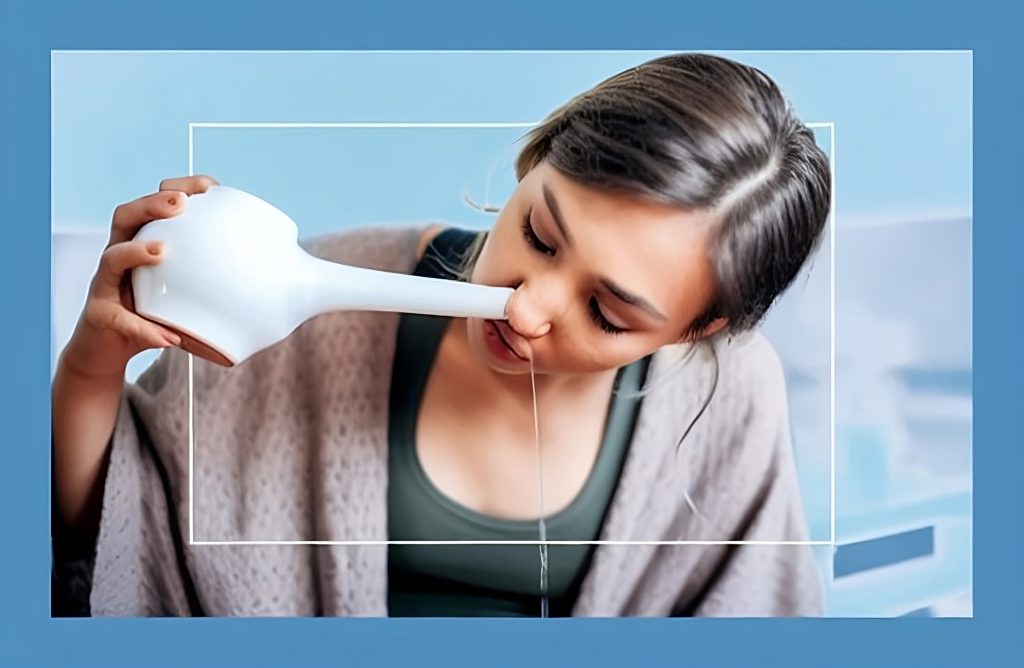
Understanding Post Nasal Drip: Symptoms, Causes, and Treatment Options
Post nasal drip, a bothersome affliction that afflicts multitudes across the globe, is a vexing condition caused by the accumulation of an abundance of mucus within the nasal passages and posterior throat, leading to undue distress and irritation. Within the confines of this article, we shall delve into the intricacies of the causes, symptoms, and possible treatment methodologies for the pesky ailment that is post nasal drip.
What is Post Nasal Drip?
Post nasal drip is a perplexing and multifaceted ailment that arises from the production of an excessive amount of mucus in the body. This accumulation of mucus manifests in the form of a myriad of symptoms, spanning from a persistently runny or congested nasal cavity to a phlegmy and irksome cough, and even a parched, aching throat that impedes swallowing with great difficulty.
Causes of Post Nasal Drip
Post nasal drip, a common and bothersome condition, can arise from a diverse array of factors, which include but are not limited to:
- Allergies, those pesky triggers that can set off an immune system response, stimulating the production of a superfluity of mucus that can accumulate in the back of the throat and consequently lead to post nasal drip.
- Sinusitis, a fancy name for the inflammation of those hollow air-filled cavities nestled in the facial bones, the sinuses, which, when in a state of inflammation, can generate an overabundance of mucus that can travel down the nasal passages and end up in the throat, causing the insufferable drip.
- Gastroesophageal Reflux Disease (GERD), a condition that arises when the contents of the stomach, particularly stomach acid, ascend into the esophagus, resulting in a panoply of symptoms that can include the hallmark heartburn, and yes, you guessed it, post nasal drip too! The rationale behind this is that the acidic content causes irritation to the esophageal lining, which in turn, stimulates an overproduction of mucus.
Symptoms of Post Nasal Drip
The multifarious symptoms of post nasal drip are subject to the severity of the condition. A plethora of symptoms include but are not limited to:
- A runny or stuffy nose, which can result from an overabundance of mucus accumulating in the nasal passages. This accumulation, in turn, can lead to obstruction or discharge.
- Coughing, an all too common symptom of post nasal drip, is triggered by a surfeit of mucus that gathers in the posterior part of the throat, causing irritation and compelling coughing bouts.
- A sore throat, yet another typical symptom of post nasal drip, is caused by an excess of mucus collecting in the posterior part of the throat, provoking irritation and inflammation.
- Difficulty swallowing, although relatively uncommon, can also be a symptom of post nasal drip. The impediment to swallowing arises from an excess of mucus accumulating in the back of the throat, thus making it arduous to swallow.
Treatment Options for Post Nasal Drip
When it comes to the vexing issue of post nasal drip, there are a myriad of treatment options that are available to alleviate symptoms. Let’s delve into some of the most common approaches for this condition:
First on the list is saline nasal irrigation, which involves the flushing of nasal passages with a saline solution. This method serves to thin out and expunge excess mucus, thus providing relief.
Another treatment option that warrants consideration is the use of antihistamines. These medications possess the ability to curtail the production of mucus in the body, making them a useful remedy for individuals who suffer from allergies – a common trigger for post nasal drip.
Decongestants are yet another option for managing post nasal drip symptoms. These medications work by reducing swelling in the nasal passages, which enhances the ease of breathing. Decongestants can be particularly effective in mitigating symptoms caused by sinusitis.
Nasal steroids are also frequently prescribed for post nasal drip management. These medications aid in diminishing inflammation in the nasal passages, which is a typical culprit in causing the condition. This therapy is often employed to address post nasal drip caused by allergies or sinusitis.
Finally, in severe cases of post nasal drip, surgery may be the last resort. This option may be deemed necessary if the condition is the result of a structural issue, such as a deviated septum or nasal polyps – growths in the nasal passages that can obstruct breathing.
Prevention of Post Nasal Drip
There exists a myriad of tactics that can be employed to forestall the occurrence of post nasal drip, including but not limited to:
Abstaining from allergens Should you find yourself with allergies, it is imperative that you steer clear of any potential allergens to mitigate the production of mucus in the body, thereby averting post nasal drip.
Sustaining hydration The adequate ingestion of fluids, especially water, can aid in the thinning of mucus and facilitate its expulsion from the body, minimizing the risk of post nasal drip.
Engaging a humidifier The utilization of a humidifier in your abode can be efficacious in preserving moisture in the atmosphere, and this, in turn, may prove instrumental in precluding post nasal drip.
Refraining from irritants If you have a predilection for post nasal drip, it is paramount that you steer clear of potential irritants, such as the inhalation of cigarette smoke, as this may exacerbate the situation.
Post nasal drip, an exceedingly pervasive and prevalent condition, can arise from a plethora of various and sundry factors such as allergies, sinusitis, and gastroesophageal reflux disease. The manifold and sundry symptoms of post nasal drip include, but are not limited to, a runny or stuffy nose, coughing, sore throat, and an impediment to swallowing with great ease. There are a variety of potential treatments available to alleviate the discomfort of post nasal drip, ranging from saline nasal irrigation, antihistamines, decongestants, nasal steroids, and even surgery if deemed necessary. In addition to these treatments, there are a multitude of preventative measures that one can undertake to combat post nasal drip, such as eschewing allergens, remaining adequately hydrated, and utilizing a humidifier in dry environments.
FAQs
- Is post nasal drip contagious? No, post nasal drip is not contagious.
- How long does post nasal drip last? The duration of post nasal drip can vary depending on the underlying cause and treatment used. In some cases, it may last for a few days, while in others, it may persist for several weeks or longer.
- Can post nasal drip cause bad breath? Yes, post nasal drip can cause bad breath, as excess mucus can accumulate in the back of the throat, leading to an unpleasant odor.
- Can post nasal drip cause ear pain? Yes, post nasal drip can cause ear pain, as excess mucus can accumulate in the Eustachian tubes, which are the tubes that connect the middle ear to the back of the throat.
- Can post nasal drip lead to a sinus infection? Yes, post nasal drip can increase the risk of developing a sinus infection, as excess mucus can create a breeding ground for bacteria.









Responses